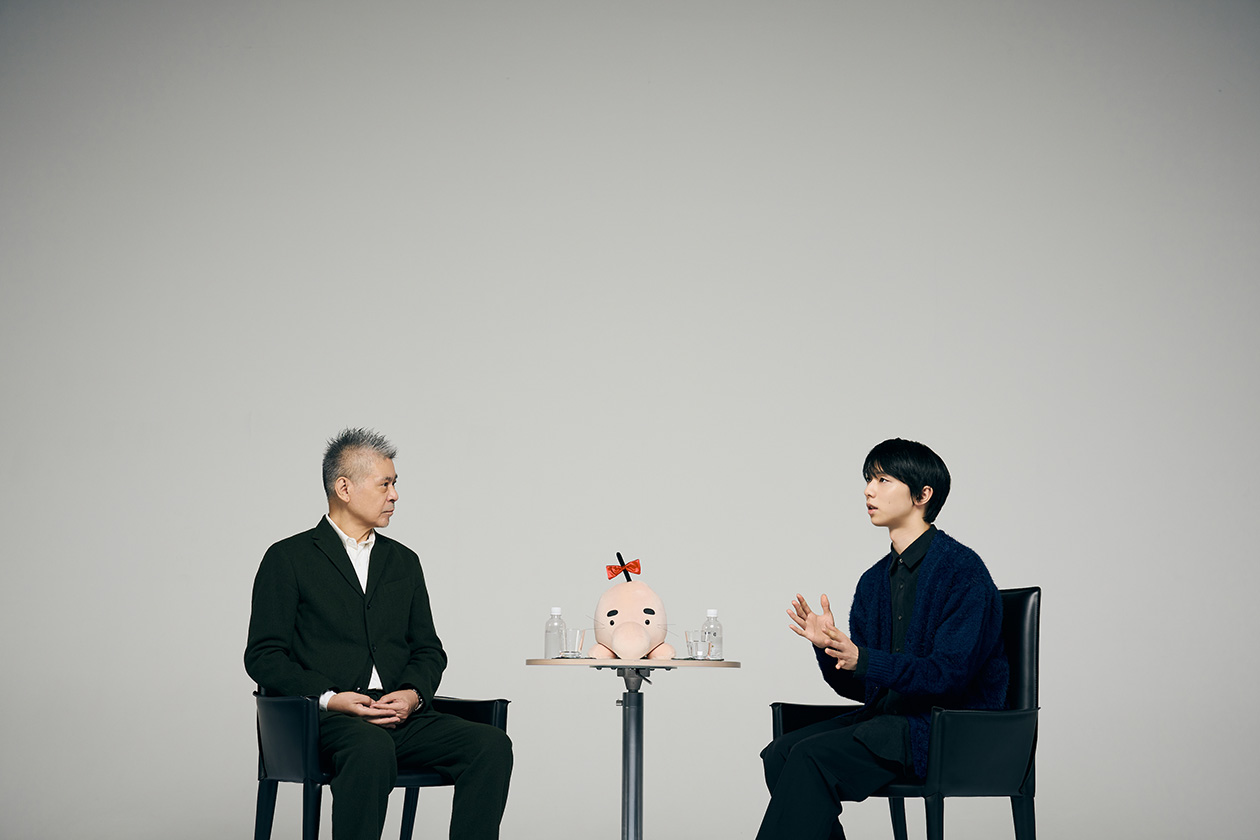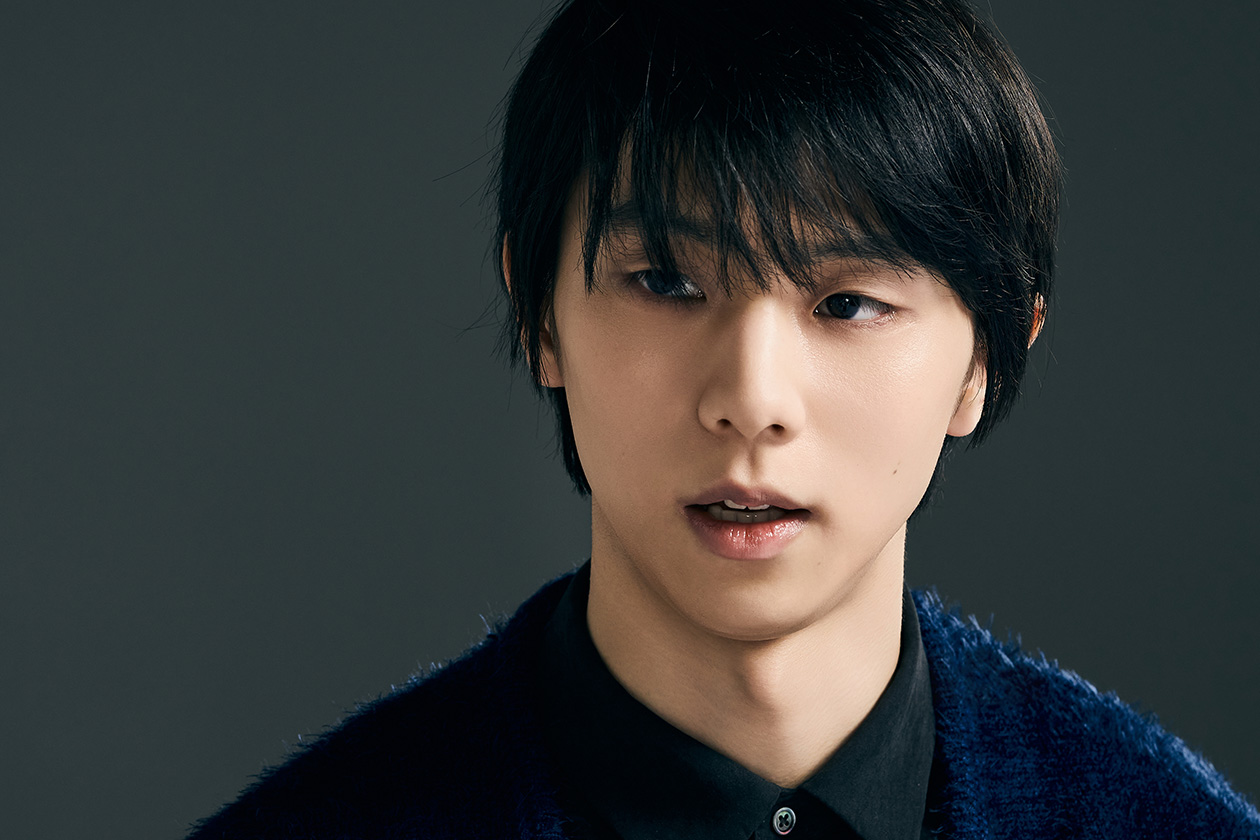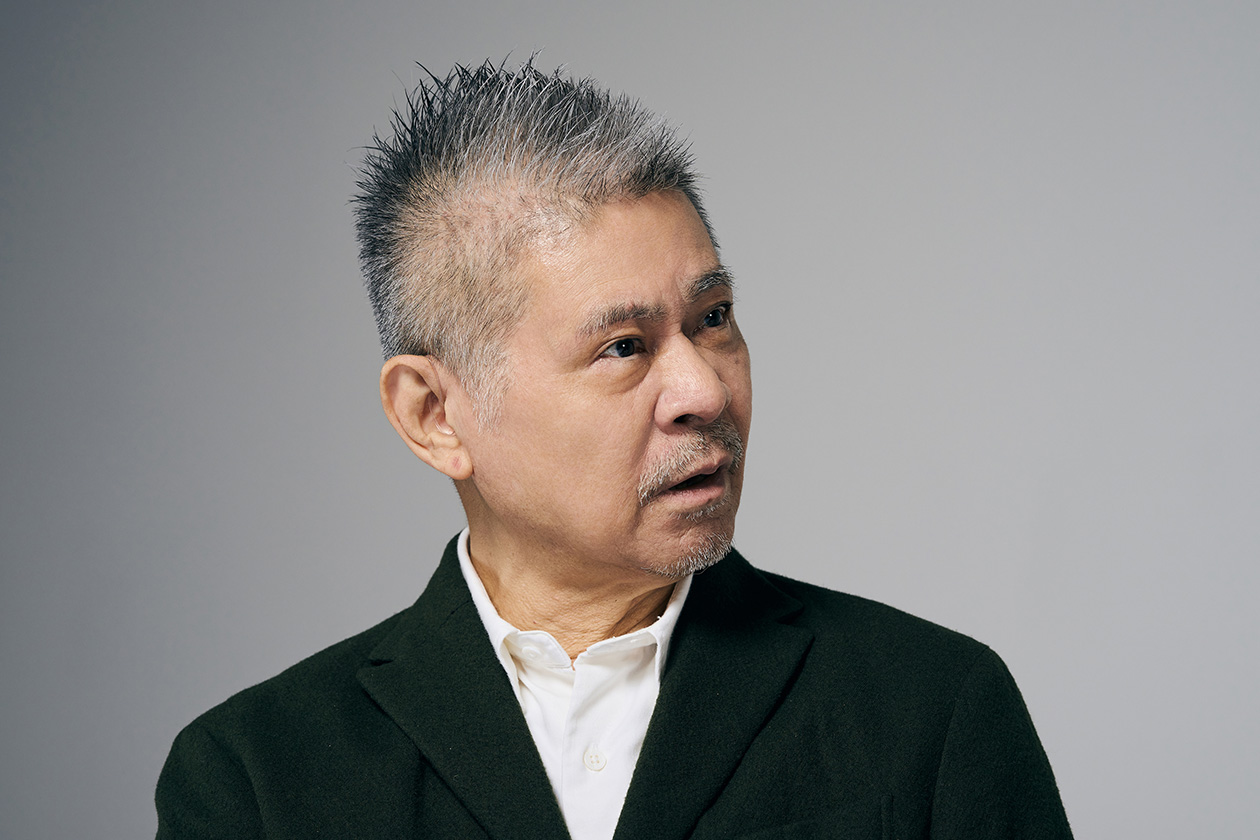
It all started when Yuzuru Hanyu said he was a MOTHER 2 fan on a TV program. This brought about the kind of discussion you only dream about. Not in a cliche way, but really and truly an amazing thing. Last December, Yuzuru Hanyu and Shigesato Itoi met in a studio in Sendai and talked about all kinds of things for two hours. We’re pleased to be able to bring you that discussion.
Yuzuru Hanyu
Born in 1994 in Miyagi Prefecture. Began figure skating at 4 years old and became world junior champion at age 14. Later won four consecutive Grand Prix Finals and four consecutive Japan Figure Skating Championships. Also won two gold medals in a row at the Sochi and Pyeongchang Olympics. Became a professional figure skater in July 2022. Currently concentrating on producing and starring in an ice show.
Boyhood/Mirror Neuron/Heaven and Earth/Mr. Saturn/
Ballet/Timeline/Homesick/Universe/Johnny Weir/
Reset/Tohoku Earthquake and Tsunami/Picasso/Sprain/
Parallel Universe/Heroic Sword and an Evil Sword/Produce/
Astro Boy/Music/Ness/Fifteen-year-old/
Romeo and Juliet/Goldfish/Nap/Athlete/Millennials/
Elder sister/A Beatles song, XXXterday/
Score/Vinyl/Death/Youngest child/
That/Hip hop/Mozart/Dilemma/Ice Show

- Hanyu
- After the Tohoku earthquake and tsunami in 2011, I went from being just another athlete to being labeled as someone from the disaster zone, so I had a lot more attention on me. That was around the time I was able to hone my skills, and had just gotten a hang of the quadruple jump, so I’d finally reached a place where I had the confidence to compete on the international stage. That’s why it was such hard timing for me to be not just a figure skater, but a representative of the disaster zone, which was an incredibly heavy burden to bear. In some ways I wanted to rebel, because I had people cheering me on for reasons beyond my performance and expression.
- Itoi
- I see.
- Hanyu
- As far as I was concerned, I’d just been doing my very best during training, and had finally gotten good enough at skating that I was starting to see the results. But I hated how I was changed into this person from the disaster zone, and how that was the new reason assigned to my hard work and success.
- Itoi
- How old were you at the time?
- Hanyu
- 16 or 17, so it was a pretty sensitive age for me.
- Itoi
- I’m sure. And that’s like you mentioned about meaning being attached to something—in this case the competitions.
- Hanyu
- Right. Of course, it was a very important thing, and I had that motivation to do my best. But what an incredible amount of weight for one person to bear. It’s too hard to be under that kind of pressure and actually clear your mind when you’re performing.
- Itoi
- I can see that.
- Hanyu
- So I had a lot of thoughts like that running through my mind as I continued to skate, but that same season, I ended up being able to pull off my best performance at the [2012 World Figure Skating] Championships in France. That’s when I was finally able to grasp the true meaning of everyone cheering for me, and the way it spurred me on. I realized it gave me the strength to skate.
- Itoi
- So it surpassed just being an assigned meaning.
- Hanyu
- Yeah. I had to strip away a lot of that noise, but I was still surrounded by people wholeheartedly cheering for me. From my perspective, those high expectations were a source of pressure and weight, but ever since then I’ve learned that those are the driving force for my getting stronger.

- Itoi
- So that competition in France was really the turning point for you.
- Hanyu
- It was.
- Itoi
- What could you tell me specifically about that performance?
- Hanyu
- I’d actually injured myself in training before that competition. My coach told me I could call it for the day, but I was a little concerned about my set and went to do a quadruple jump. I suffered a sprain when I landed. I ended up competing in the short program like that, but I was still able to pull off a quadruple jump. I ended up making a mistake on my last, simple triple jump which landed me in seventh place for a tough start. But because I’d been able to land a quadruple jump, I was still pretty ecstatic. I couldn’t believe I’d been able to land that jump even though I was injured. I gave the credit to all my hard work, but that’s when my mom chided me for looking at it wrong. She told me not to take for granted all the people who supported me and cheered for me between the time I got that sprain to the time I landed that quadruple jump.
- Itoi
- That’s amazing.
- Hanyu
- That’s when I realized she was right, that my performance was directly related to the support of so many people. I’d envisioned all the cheers from my usual fans and from all the people cheering me on from the disaster zone, and I skated with all that gratitude in my heart. And as a result, I had an extremely good performance. I think that was a turning point in how I viewed pressure.
(*Hanyu’s 7th place free skate performance was “Romeo and Juliet.” He completed all his jumps perfectly in the first half, but fell during a transition and placed both hands on the ice. But besides that, the level of perfection of his jumps and his emotional expression during the performance were so overwhelming that even the fall felt like part of the performance as an obstacle for Romeo and Juliet—for Yuzuru Hanyu—to overcome. The audience was captivated and cheered wildly at the end of his performance. In the end, he achieved his best score of the season and placed third overall. It was his first World Championship, and at 17 years and 3 months old he became the youngest Japanese male medalist ever.)
- Itoi
- So you didn’t take that weight off your shoulders, you accepted it.
- Hanyu
- Yeah. I let myself feel the weight of all the people who were cheering for me, and was able to become stronger and develop my own style from that weight.
- Itoi
- In other words, Yuzuru Hanyu stands at the tip of the pencil lead and writes words and expressions, but none of that could happen without the body of the pencil.

- Hanyu
- Right.
- Itoi
- Everyone who’s cheering you on is on the same team, but it’s not so clear as it would be for a team sport. You might be aware of that support, but I’m sure you still feel a sense of loneliness when you’re out there skating on the ice.
- Hanyu
- Ah, yeah.
- Itoi
- It’s a lot to ask for someone to understand all that and accept it—it takes more than just willpower.
- Hanyu
- I could see that. I’ve said this many times, but I’ve been incredibly blessed to experience what I have. I’ve had my share of trials and tribulations, of course, but I’m grateful for the opportunities to experience so many amazing things.
- Itoi
- For sure.
- Hanyu
- I think I’ll be able to look back and point at the experiences in my life that made me stronger. I’ve already had lots of things like that, and will continue to. So I feel really blessed. (Laughs)
Boyhood/Mirror Neuron/Heaven and Earth/Mr. Saturn/
Ballet/Timeline/Homesick/Universe/Johnny Weir/
Reset/Tohoku Earthquake and Tsunami/Picasso/Sprain/
Parallel Universe/Heroic Sword and an Evil Sword/Produce/
Astro Boy/Music/Ness/Fifteen-year-old/
Romeo and Juliet/Goldfish/Nap/Athlete/Millennials/
Elder sister/A Beatles song, XXXterday/
Score/Vinyl/Death/Youngest child/
That/Hip hop/Mozart/Dilemma/Ice Show
(To be continued)
2024-03-03-SUN


